Channel Partner vs. Distributor
Sourcing and delivering goods requires a network of professionals dedicated to getting the right products in the right hands at the right time. Businesses work with a wide range of channel partners and distributors to provide customers with the items they’re looking for.
But what’s the difference between a channel partner and a distributor? Although these terms are often used interchangeably, they actually play distinct roles in the supply chain. Read on to explore the differences between them and how to leverage both services to your advantage.
What Is a Channel Partner?
A channel partner works closely with the manufacturer to sell and promote their products or services, often as a complementary offering within their portfolio. A distributor functions as an intermediary entity that purchases products from manufacturers and resells them to retailers or end customers. They focus primarily on logistics and product delivery.
When comparing the channel partner vs distributor service, it’s important to consider your specific business needs. Use online resources to learn more about each service and how it can benefit your business. For example, you might search “channel partner vs distributor Reddit” to view Reddit threads on the topic.
Channel Partner vs. Distributor vs. Partnership
The key takeaway here is that a channel partner acts as a true partner in getting goods to customers. They typically use co-branding to help market their services alongside your product. Distributors, by contrast, simply sell the product.
Channel partner vs. Reseller
The channel partner vs reseller comparison highlights the importance of knowing who you’re working with. A reseller is all about getting items into customers’ hands, whereas a channel partner aims to accomplish something for their own brand while helping yours.
In one channel partner example, a value-added reseller (VAR) might purchase a partner’s computer components, assemble them into complete systems, and sell them alongside additional software or services. That way, this new channel partner software combines the best of both worlds.
Crafting a Channel Partner Strategy
So, where do you start if you decide you want to work with a channel partner? First, it’s important to build a channel partner strategy outlining what type of channel partner you want to collaborate with, what their expected role will be, and your desired outcomes.
Making a channel partner strategy PPT can be a great way to organize your thoughts and explain your plan to the rest of your team.
What is a Distribution Partner?
A distribution partner acts similarly to a channel partner; a distribution partner is a company or entity that helps a manufacturer bring its product to market. They serve as an intermediary between the manufacturer and the end customers or retail outlets.
What is The SaaS Channel Partner Commission Structure?
The SaaS channel partner commission structure differs slightly from the commission structures of other industries. Channel partners generally earn a percentage of sales, often ranging from 10% to 30%. This can include recurring commissions for subscription renewals, with some companies offering tiered rates that increase with higher sales volumes.
Performance incentives for achieving specific targets and upfront bonuses for new customer acquisitions are also common. The specifics are subject to negotiation between the involved parties.
Channel Partner Companies
Channel partner companies play a pivotal role in expanding business reach and market penetration. Channel partner companies in India contribute significantly to various industries. Lists of channel partner companies often highlight the best and top performers in the sector, showcasing those with exceptional service and market impact.
The top channel partner companies are recognized for their strategic collaborations and ability to boost sales and distribution networks. Browsing a list of the best channel partner companies can be a good way to learn more about these organizations and the value they bring to the table.
Partnership Cost
When entering into any sort of business partnership, you probably wonder: what’s this going to cost me? Researching channel partner vs. distributor vs. partnership cost is critical before signing an agreement with an outside party.
Channel partner program cost is based on multiple factors, like the size of your businesses, your specific products, and the types of tools and strategies you use. Be sure to consider all relevant factors when outlining the terms of your partnership.
Finding the Best Channel Partner Programs
Developing a good channel partner program takes time and patience. You may need to rework or renegotiate the terms of your contract in order to find a solution that’s mutually beneficial. It can be helpful to start with a channel partner program template.
Once you’ve filled out your template, use it to create a channel partner program presentation. Explain your strategy to the rest of your team, and make sure everyone is clear about your ultimate goals. Compile key points into a channel partner program PDF for greater readability.
Channel Partner Program Examples
Common channel partner program examples include reseller programs, where partners retail products directly to consumers, affiliate programs that offer commissions for referrals, and distributor agreements for bulk sales.
B2B Channel Partners
To learn more about current channel partners in marketing, you can Google “channel partners 2023.” This can be a great way for businesses to learn more about the different types of partners out there today.
B2B Channel Partners
Distribution channel partners play a particularly vital role in the B2B sector. They introduce products and services to the manufacturer, allowing them to reach a broader audience. Viewing channel partners’ examples is a great way to see what this looks like in action.
Channel Partners List
Thinking about working with a channel partner? Consider browsing a channel partners list to get a better idea of your options. No matter your specific product or industry, look for a company whose goals align with yours.
Channel Partners List in USA
Some of the best channel partners in the US today include Intelisys, Telarus, and PlanetOne Communications. These leaders have been recognized for their partner-friendly, innovative business strategies.
The Channel Partners Conference & Expo
Those in the Las Vegas area can benefit from searching for local partners. Googling “channel partners Las Vegas 2023” can bring up a list of options. Las Vegas also hosted this year’s Channel Partners Conference & Expo, where channel partners from around the world gathered to discuss their unique products and partnerships.
Types of Channel Partners
There are several different types of channel partners. Resellers, one of the most common types, purchase products to sell them directly to consumers. Distributors act as intermediaries, buying in bulk and supplying to other businesses or retailers.
Managed service providers (MSPs) offer specialized IT services. System integrators blend various hardware and software products to create cohesive systems tailored to specific business needs. Understanding the various types of channel partnerships is key to choosing the one that’s right for your company.
Technology Partnerships
It’s also important to be aware of the different types of technology partnerships that exist within this space. Technology channel partnerships encompass various collaborative relationships tailored to the tech industry. MSPs specialize in delivering IT services under a subscription model, handling tasks like network management and data analytics.
Cloud service partnerships have also become crucial, with partners offering cloud-based solutions to businesses. Additionally, system integrators play a key role. They combine multiple tech products to create comprehensive, customized solutions for specific business needs.
Salesforce Resources
Salesforce resources play a crucial role in optimizing channel partner selling models, facilitating efficient collaboration, and driving successful outcomes for businesses. In the context of channel partnerships, salesforce resources refer to the tools, materials, and strategies employed to empower and enable partners to effectively sell products or services. These resources often include a combination of training materials, marketing collateral, and technological solutions.
A fundamental aspect of successful channel partner engagement is comprehensive training, and salesforce resources contribute significantly to this area. Providing partners with training materials, webinars, and documentation ensures that they have a deep understanding of the products or services they are selling, as well as the best practices for positioning them in the market. This not only enhances the partner’s credibility but also contributes to a more cohesive and knowledgeable salesforce.
In addition to training, salesforce resources encompass marketing collateral that partners can leverage in their sales efforts. This may include brochures, case studies, product sheets, and other materials that effectively communicate the value proposition of the offerings. Equipped with compelling collateral, channel partners can engage potential customers more persuasively, addressing their pain points and highlighting the unique benefits of the products or services they represent.
Furthermore, the integration of technology into salesforce resources is pivotal. This could involve the use of customer relationship management (CRM) systems, sales enablement platforms, or partner portals that streamline communication, track performance, and provide valuable insights. By leveraging these technological tools, channel partners can enhance their efficiency, maintain accurate records, and collaborate seamlessly with the parent company. In essence, salesforce resources in a channel partner selling model are the linchpin for building strong, informed, and successful partnerships.
A Partner Distribution Channel Quizlet
So why would a business owner choose a partner distribution channel? There are numerous reasons that a business might work with a partner channel. First and foremost, partner channels can extend an organization’s reach into new markets. They can also drive cost efficiency.
To find examples of 3 different types of channel partners and describe the value they add, consider resellers who directly sell products to customers, enhancing sales volumes; VARs who augment products with extra features or services, increasing product appeal; and MSPs offering ongoing specialized services, ensuring customer retention and satisfaction.
Channel Partners in Business
Channel partners in business are third-party entities that collaborate with a company to market and distribute its products or services. To find channel partners, businesses often look at industry events, cloud marketplaces, and professional networks that align with their products or services.
Channel partners typically get paid through commissions, discounts on products, or a share of the revenue generated from sales. An example of channel partners would be an AWS Advanced Consulting Partner specializing in cloud migration and optimization, serves as a vital channel partner. Following a thorough onboarding process, the Channel Partner collaborates with software vendors through private offerings (CPPO) to create comprehensive offerings that bundle migration tools with consulting services. Leveraging their existing client base, they promote these offerings, provide sales support, and manage billing, earning a share of revenue from AWS Marketplace sales. With a focus on technical support and integration, the Channel Partner ensures a seamless implementation for clients, going beyond basic assistance to offer value-added services and long-term relationship management. By staying attuned to industry compliance and governance best practices, the channel partner plays a pivotal role in facilitating successful cloud adoption and migration for businesses navigating the AWS Marketplace landscape.
The Role of Channel Partners in Business
What is the role of channel partners in business? A channel partner collaborates with a company to market and sell its products. This partnership can take various forms, such as reselling, distribution, or offering value-added services. A distributor primarily buys products in bulk from manufacturers and sells them to retailers or directly to customers.
The key difference between a channel partner and a distributor lies in the scope of their roles: while distributors are primarily concerned with sales, channel partners often engage in broader activities, including marketing, customer service, and product customization.
Types of Channel Members
As is the case in any business arrangement, different channel members play different roles in the partnership. Channel members in a distribution system include manufacturers, wholesalers, and retailers. The three primary channel members are manufacturers, wholesalers, and retailers.
Each member plays a crucial role in the supply chain, ensuring products move efficiently from production to consumer.
Channel Partner Programs
Getting started with a channel program involves a lot of strategic planning. First, identify potential partners that align with your business goals and develop a structured plan outlining mutual benefits and responsibilities.
Partner channel sales work by allowing third parties to sell your products or services. The purpose of a channel partner agreement is to formally define the terms, roles, expectations, and compensation involved in this partnership, so be sure to keep all this in mind when devising your strategy.
Finding Inspiration
If you’re looking for distribution partner services, it’s important to thoroughly consider all of your options. It can be helpful to view a distribution partner’s example—or even a distribution partner’s example business plan—for inspiration.
There are many different distribution partners example, companies, so be sure to research them all.
Distribution Partnership Marketing
In a distribution partnership, businesses collaborate to expand product reach and deepen market penetration. Distribution partnership marketing involves joint promotional efforts. Types of distribution partnerships include exclusive and non-exclusive agreements. A good distribution partnership example is a tech manufacturer partnering with a retail chain for product distribution.
What the Distributor Partnership Model Looks Like
The distributor partnership model involves close collaboration between a manufacturer and a distributor, where the distributor sells and markets the manufacturer’s products. This model allows manufacturers to broaden their customer horizons. Distributors benefit from an established product line and brand recognition.
This synergy can lead to increased sales and market penetration for both parties.
What Does a Distribution Partner Do?
A distribution partner handles the sales and distribution of a manufacturer’s products to the market. Are you interested in working with one of these partners? If so, consider their market reach, reputation, compatibility with your product, and logistical capabilities.
Good Examples of Distribution Partnerships
Distribution partnerships offer cost efficiency and greater customer access. A classic example of a distribution company is FedEx, known for its global logistics and distribution services. A good example of distribution is Coca-Cola’s extensive network, ensuring product availability worldwide.
The four types of distribution channels are direct selling, selling through intermediaries, dual distribution, and reverse channels, each varying in complexity and involvement of intermediaries between producers and consumers.
Looking for a good channel partner that can lead you through this complex landscape? Look no further than Torchlite. We offer channel partner management software to help users onboard, track, and certify partners–and much more.
Improve Your Channel Partner Management With Torchlite
Many organizations tend to think of channel management as a strictly-human job because relationships are built by people. And while that is true, partnership management skills can only take you so far in the business world if you don’t have the tools to effectively manage your partner portfolio. Even the most skilled carpenter can only do so much with a simple hammer, after all.
Think of Torchlite as an entire toolbox for channel partner managers: it’s a software platform that provides an entire suite of tools, capabilities, and channels that can house an entire partner portfolio. On top of that, Torchlite’s “Simply Intelligent” software design makes it easy to customize workflows, channels, and portals for each partner, meaning that as your relationships evolve, Torchlite evolves alongside them. You’ll always have the tools you need and the ability to incorporate new ones through our seamless integration. Perhaps then, it’s better to think of Torchlite as not just a toolbox, but the entire tool shop.
It’s time to set fire to the old ways of Channel Management—and Torchlite is here to offer you the match. Book a demo with us today and see the power of Torchlite software for yourself.






